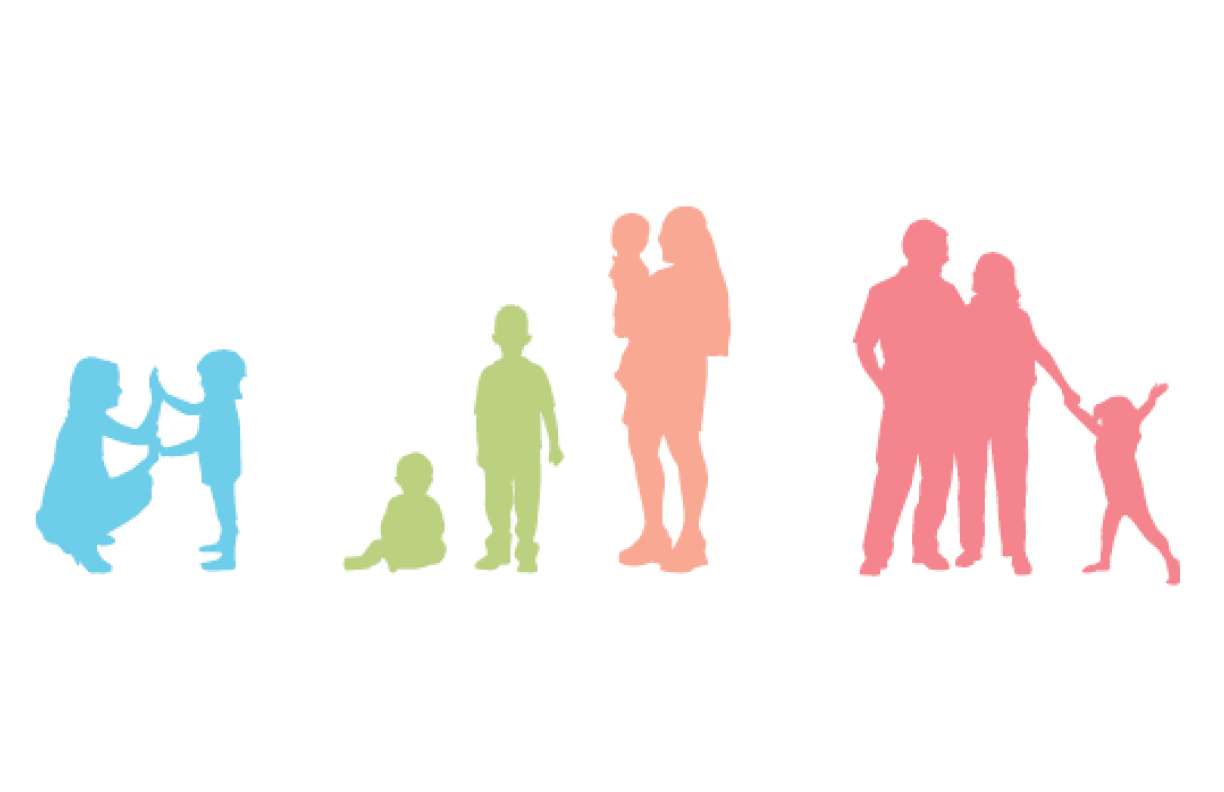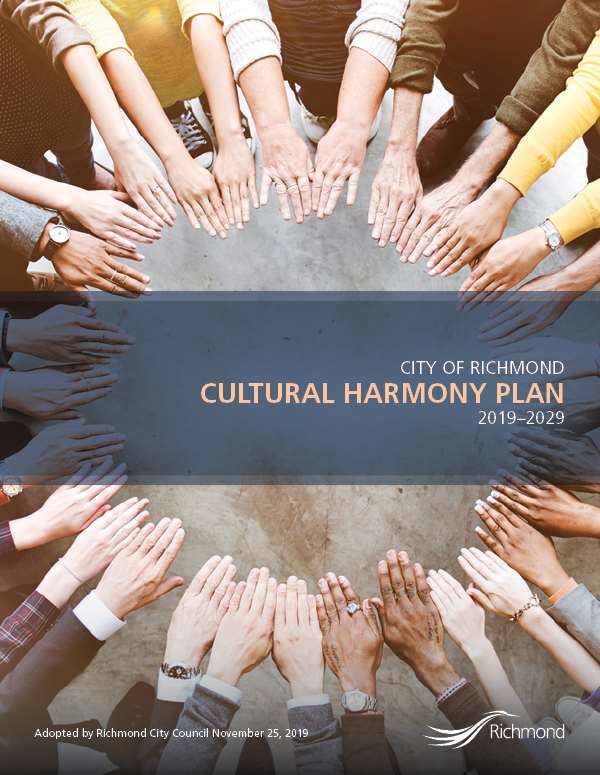Community & Culture
Affordable Housing Strategy
To support the development of the Strategy, the City also prepared two companion documents:
- Richmond Housing Affordability Profile
A data-driven snapshot of local housing trends, affordability challenges and community needs.
- Policy Recommendations to Inform Strategy
A summary of key policy options and approaches reviewed during the strategy's development.
Together, these documents provide the foundation for the City's ongoing work to increase and protect affordable housing across Richmond.
For more information on the City's housing work, visit Affordable Housing.
ArtWorks: Richmond Arts Strategy
The City of Richmond recognizes the arts are essential to building vibrant communities. Home to a rich cultural mosaic, Richmond is shaped by growth, changing demographics and a diverse arts landscape.
ArtWorks: Richmond Arts Strategy 2026–2031 serves as a guide for decision-making to empower ideas, people and resources around a shared vision to advance the policies, programs and services needed for the arts to thrive in Richmond.
Building on the previous 2019–2024 Strategy, which was shaped through extensive community input and guided by a 25-member Task Group, the updated Strategy continues to be driven by a unifying vision: “Richmond’s thriving arts scene animates our city every day; offers rich arts education and experiences, festivals and events; fosters social connections and wellness; and provides creative spaces.”
Child Care Strategy
Richmond Child Care Strategy 2024-2034
The Richmond Child Care Strategy 2024-2034 is the fifth child care strategy the City of Richmond has undertaken and builds upon progress made by the previous strategies.
This Strategy offers valuable insights into the current and future needs of the community, and identifies the key strengths, challenges and opportunities for child care in Richmond. The Strategy provides a set of strategic directions and actions for the City in relation to child care over the next ten years, including actions relating to creating and maintaining spaces; quality, inclusivity and accessibility; advocacy; collaboration; and education and information.
Richmond Child Care Strategy 2024-2034 (3.13MB)
 The Strategy is complemented by the 2021-2031 Richmond Child Care Action Plan, which sets defined child care space creation targets and identifies clear action items to meet them.
The Strategy is complemented by the 2021-2031 Richmond Child Care Action Plan, which sets defined child care space creation targets and identifies clear action items to meet them.
The City of Richmond is a municipal leader in its commitment to child care. The child care space targets and actions outlined in the 2021–2031 Richmond Child Care Action Plan demonstrate the City’s recognition of child care being an essential need for Richmond residents and employees.
This plan offers valuable insight on municipal initiatives to expand and enhance child care choices in Richmond. Through research and consultation, the 2021-2031 Richmond Child Care Action Plan provides a snapshot of the current state of child care in Richmond and assesses the opportunities and challenges to better meet the child care needs of families. With this information, targets for child care space creation and actions to meet these targets are identified.
2021-2031 Richmond Child Care Action Plan
2021-2031 Richmond Child Care Action Plan - Key Findings
For more information, visit the Child Care section of our website.
Community Wellness Strategy
The City of Richmond Community Wellness Strategy 2018–2023 was adopted by City Council in July 2018. The purpose of this five-year strategy is to take a collaborative and holistic approach to improve wellness for Richmond residents and to increase opportunities for individuals, neighbourhoods and communities to be active and healthy.
The Community Wellness Strategy 2018-2023 was developed in partnership between the City of Richmond, Vancouver Coastal Health – Richmond and Richmond School District No. 38. This five-year strategy prioritizes wellness as a contributor to a vibrant, appealing and livable community and identifies innovative approaches to most effectively impact wellness outcomes.
Progress Update 2022-2023 - released in Jun 2024
Richmond Community Wellness Strategy (2018-2023) - Progress Update 2022-2023
Healthy Richmond
To provide a local perspective on health and wellness issues to support the ongoing monitoring and evaluation of the Richmond Community Wellness Strategy, Vancouver Coast Health developed the Healthy Richmond Survey in 2012.
To view the full report, please visit: www.vch.ca
Cultural Harmony Plan
 On November 25, 2019, City Council adopted the 2019-2029 Cultural Harmony Plan, which will guide the City’s approach in enhancing cultural harmony among Richmond’s diverse population. This plan sets out five strategic directions and 27 recommended actions to be completed over a 10-year period.
On November 25, 2019, City Council adopted the 2019-2029 Cultural Harmony Plan, which will guide the City’s approach in enhancing cultural harmony among Richmond’s diverse population. This plan sets out five strategic directions and 27 recommended actions to be completed over a 10-year period.
The Cultural Harmony Plan Progress Report for 2019–2021 provides a high-level summary of the accomplishments and endeavours the City, in partnership with the community, has accomplished to enhance intercultural connections among Richmond’s diverse population from 2019 to 2021.
Cultural Harmony Plan Progress Report for 2022-2023
Cultural Harmony Plan Progress Report for 2019-2021
Homelessness
On September 9, 2019, the Richmond Homelessness Strategy 2019-2029 was adopted by City Council. This strategy was informed through extensive public engagement activities and is guiding City staff and community actions regarding homelessness service provision over the 10-year period.
The Homelessness Strategy 2019-2029 provides the following vision statement:
“By 2029, homelessness in Richmond will be rare, brief and non-recurring. Richmond is an inclusive community that works in collaboration to provide a continuum of housing and support services.”
To achieve this vision, the strategy provides five strategic directions and 32 related actions:
- Prevent pathways into homelessness.
- Support residents who are experiencing homelessness.
- Provide pathways out of homelessness.
- Foster collaboration and capacity-building among community partners.
- Communicate, research and monitor homelessness.
The City partners with numerous community stakeholders to undertake the recommended actions outlined in the Homelessness Strategy 2019-2029. Annual update reports to City Council (provided below) highlight ongoing progress in implementing this Strategy.
Homelessness Strategy 2019-2029 - 2024 Update
Homelessness Strategy 2019-2029 - 2023 Update
Homelessness Strategy 2019-2029 - 2022 Update
Homelessness Strategy 2019-2029 - 2021 Update
Homelessness Strategy 2019-2029 - 2020 Update
Poverty Reduction
On December 6, 2021, City Council adopted the 2021-2031 Collaborative Action Plan to Reduce and Prevent Poverty in Richmond, which will help to guide the City’s approach, in collaboration with the community, to reduce and prevent poverty in Richmond over the next 10 years. This plan sets out four strategic directions and 26 recommended actions to be completed over a 10 year period.
2021-2031 Collaborative Action Plan to Reduce and Prevent Poverty in Richmond
2021-2031 Collaborative Action Plan 2022-2023 Highlights
Richmond Accessibility Plan (2023–2033)
On April 8, 2024, City Council adopted the Richmond Accessibility Plan 2023–2033 (the Plan) to guide the advancement of accessibility in Richmond, in collaboration with the community.
The Plan sets out six strategic pillars and 34 recommended actions to be completed over a 10-year period.
2023–2033 Richmond Accessibility Plan (4.5MB)
Seniors Strategy
City Council adopted the City of Richmond Seniors Strategy (2022-2032) on September 26, 2022, which guides the work of the City and community partners to support seniors living in Richmond over the strategy’s 10-year timeframe. The purpose of the Strategy is to address the needs of the growing population of seniors in Richmond. The Strategy does this by building on a solid foundation of community supports and programs that support the vision “that seniors living in Richmond are safe, respected, healthy and engaged in their communities.”
Every two years, a Seniors Strategy Highlight Report will be presented to City Council.
Seniors Strategy Highlights Report 2023-2024
Signature and Community Events Plan 2025-2029
City Council adopted the The City of Richmond Signature and Community Events Plan 2025-2029 on October 21, 2024.The City of Richmond Signature and Community Events Plan will guide the development and implementation of City-led and City-supported signature and community events for the next five years. The Plan will inform City decision-making around prioritizing and planning signature and community events from 2025-2029, while providing direction to respond to emerging opportunities.
Social Development Strategy
On December 17, 2025, City Council adopted the Building Our Future Together: Social Development Strategy (2025–2035), which guides the City’s approach, in collaboration with community partners, to advancing social development in Richmond over the next 10 years. The aim is to ensure that everyone who lives, works, plays and learns in Richmond can thrive and participate fully in the community. The Strategy is organized into five strategic directions and 73 priority actions to be completed over the coming decade.
Youth Strategy
 On Jul 24, 2023, City Council adopted the 2022–2032 Richmond Youth Strategy which guides the City’s approach to working collaboratively with youth and community partners to meet the needs of youth (13-24 years) in Richmond. The Youth Strategy identifies a vision that ‘all youth in Richmond are safe, valued, respected and have the supports, opportunities, and resources to live rich and fulfilling lives.’ The Youth Strategy is organized into five strategic priorities and 36 actions to be completed over a 10-year period.
On Jul 24, 2023, City Council adopted the 2022–2032 Richmond Youth Strategy which guides the City’s approach to working collaboratively with youth and community partners to meet the needs of youth (13-24 years) in Richmond. The Youth Strategy identifies a vision that ‘all youth in Richmond are safe, valued, respected and have the supports, opportunities, and resources to live rich and fulfilling lives.’ The Youth Strategy is organized into five strategic priorities and 36 actions to be completed over a 10-year period.

